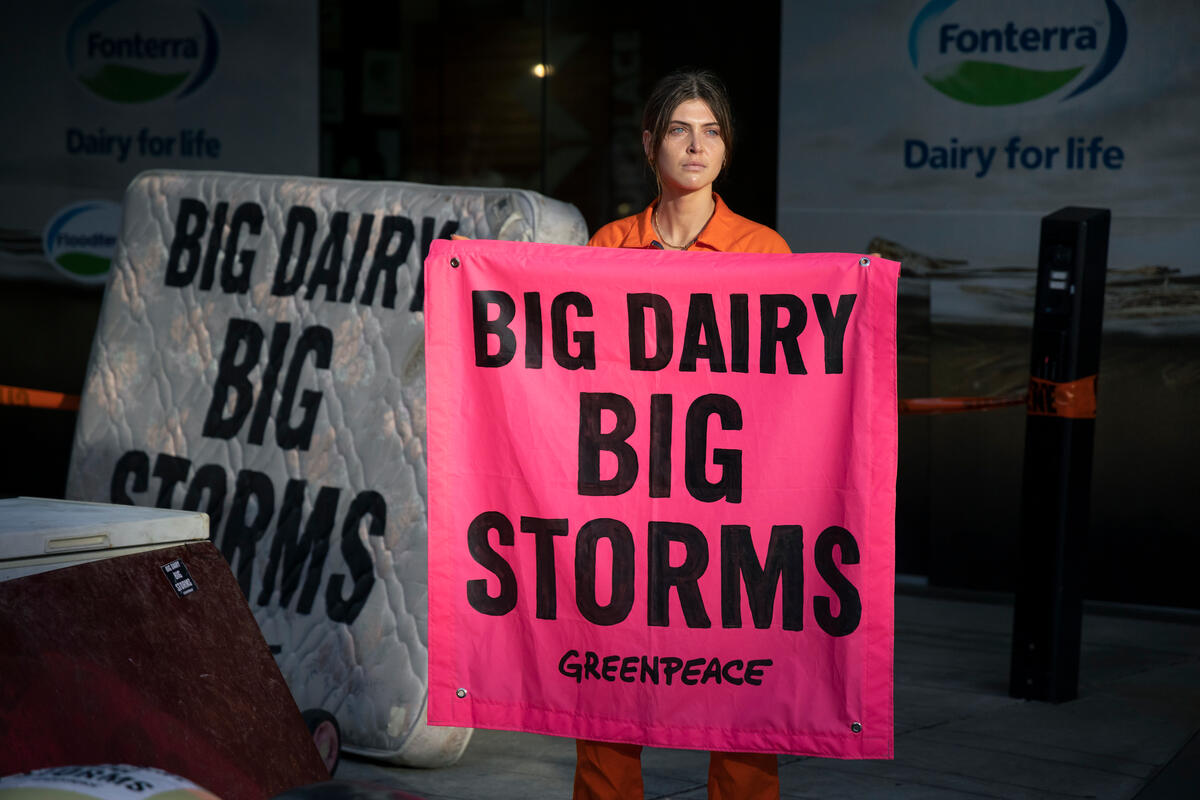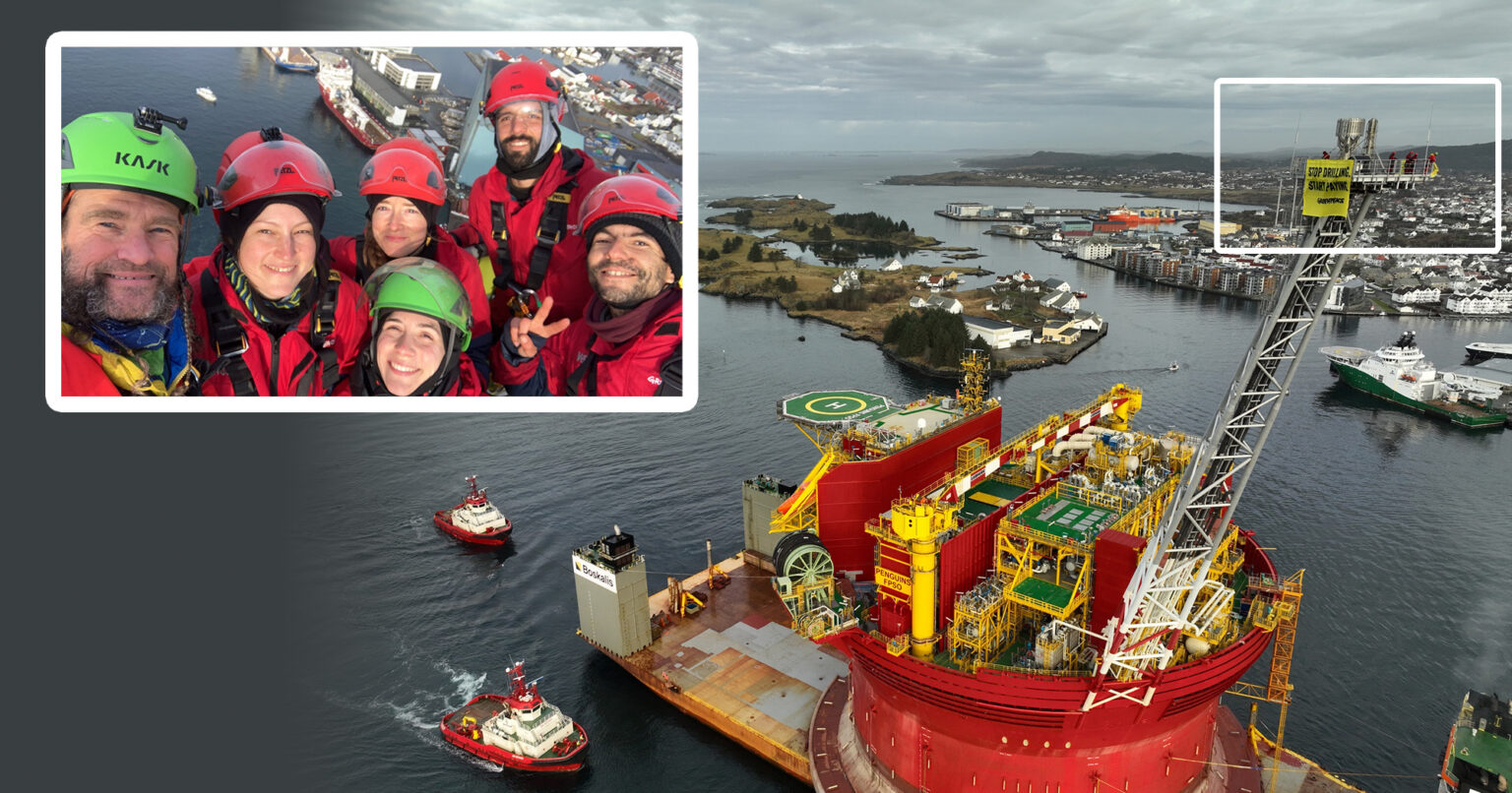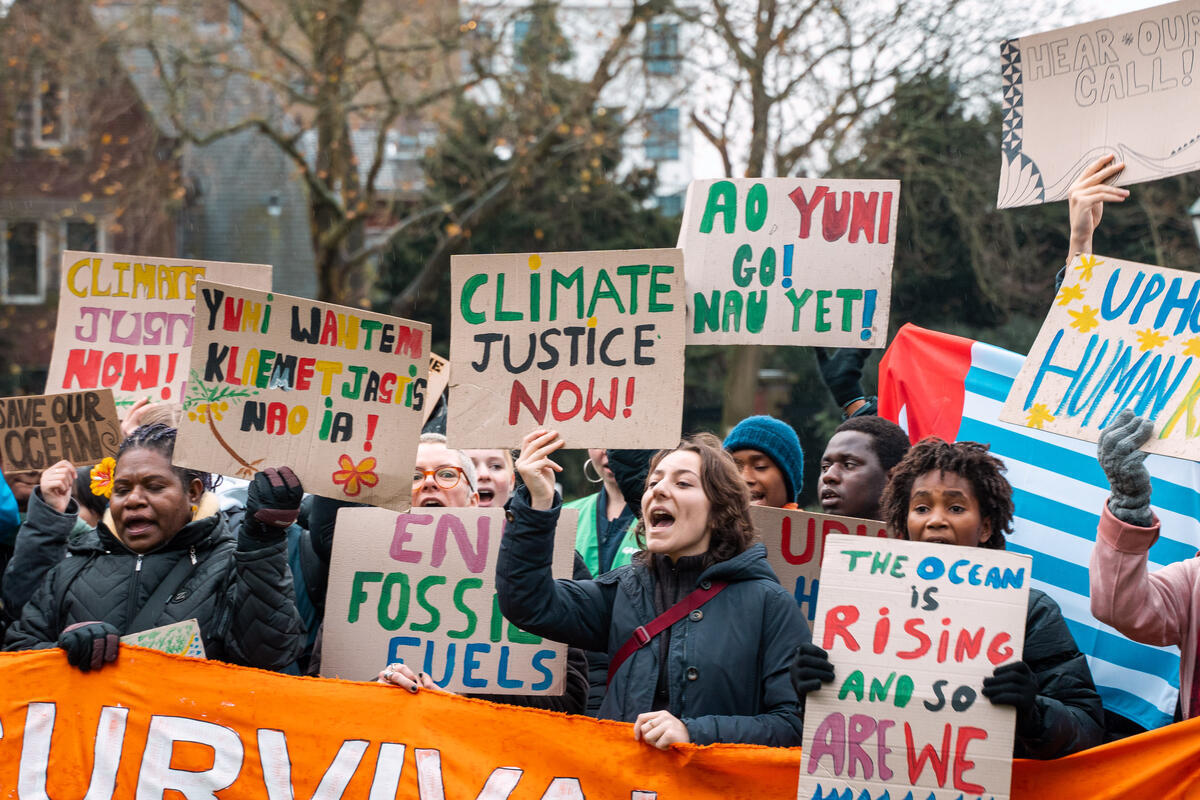Greenpeace is applauding the Green Party for promising bold action on dairy sector climate pollution with the launch of the party’s He Ara Anamata today. However, Greenpeace warns that the party will need to have the tenacity to push these policies through as bottom lines in future coalition negotiations.
“The intensive dairy industry, led by Fonterra, is New Zealand’s worst climate polluter, belching out vast amounts of superheating methane gas,” says Greenpeace spokesperson Amanda Larsson.
“There are simply too many dairy cows in New Zealand. These massive herd sizes are only possible because huge amounts of palm kernel and synthetic nitrogen fertiliser are used to feed them. It’s great to see the Greens committing to phase out these enablers, bring agriculture into the Emissions Trading Scheme and support farmers to transition to ecological practices that work in harmony with nature.”
Livestock is the single biggest source of methane emissions – a superheating greenhouse gas that is 80 times more potent than carbon dioxide over a 20-year period. Reducing methane associated with meat and dairy is a critical lever that will influence how quickly or slowly the world heats up in the near term.
“At a time when the Luxon-led government is caving to polluting industry lobbyists and undermining climate action across all fronts, it is refreshing to see an alternative pathway,” says Larsson.
“Farmers must be supported to transition to more plant-based and ecological farming methods that use fewer inputs and sustain smaller herds. This way of farming is better for people, cows, the rivers, and the climate. It’s also increasingly what customers, both here in Aotearoa and overseas, want and expect from food producers.”
Larsson says that it is one thing to promise bold action two years out from an election but another thing entirely to put those promises into action if elected.
“The Greens will need to show real tenacity to push through these policies if elected into Government. For more than twenty years, successive Governments have failed to hold the dairy industry to account for its outsized climate pollution. That includes the previous Government where a Green climate change minister failed to bring agriculture into the Emissions Trading Scheme despite six years in office.”
The world experienced record-breaking temperatures in 2024, making this year the hottest year on record. Scientists are now warning that the 1.5 degree target – set as a benchmark for avoiding the worst impacts of climate change – is becoming increasingly unattainable. Greenpeace says this means it’s more important than ever to tackle global livestock emissions, including in Aotearoa.
“Climate change is like a raging housefire, and the meat and dairy industry’s methane pollution is a stream of petrol pouring onto the flames. That fire is burning up our only home, and our kids are inside,” says Larsson.
“The decisions we make today will make or break our future. Now is the time to be courageous and steadfast. We know how to cut emissions – we have all the technology and tools to do so. What’s needed is political will to put these tools into action.”



